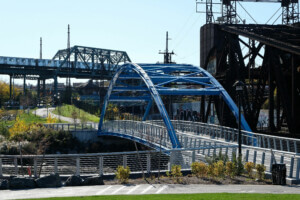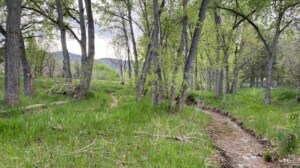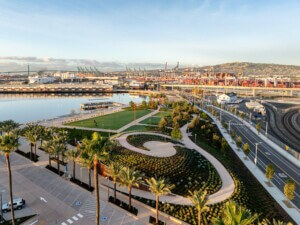CNN’s Dr. Sanjay Gupta points out a University of Michigan, Ann Arbor study suggesting that city dwellers harbor more stress than their suburban counterparts, but says access to parks could be the cure. Researchers have found that spending time in parks or park-like settings can help reduce cognitive effort and promote relaxation.
Data seems to suggest that urban planning and the design of park space into our built environment can have a much more profound effect on our individual behavior and psychology than we might think. Parks, researchers suggest, are the best medicine for a chaotic world. Here’s the problem from Dr. Gupta:
The problem seems to be “attention,” or more specifically, the lack of it. With so many different distractions — from a flashing neon sign, to the cell phone conversation of a nearby passenger on a bus, a city dweller starts to practice something known as “controlled perception.” That toggling back and forth between competing stimuli can be mentally exhausting.
Researchers asked different groups of students to spend a day in the city and in the suburbs and then evaluated their mood and attention. While the suburbs have their own unique stress points compared to the city (who enjoys the road-rage inducing commute on the choked interstate or the banal asphalt lots fronting endless shopping centers?), there’s much more green within sight that soothes our brains.
To be fair, there are many different types of urban experiences – many replete with green space. While a walk through the crowded, neon-flashing streets of Times Square with its hustle and bustle could undoubtedly strain the most focused individual, a stroll through the shady, tree-lined streets of the West Village, steps from where Jane Jacobs once lived, can offer a thoroughly relaxing experience.
But increasing the amount of nature in cities can’t be a bad thing. Even a little green can go a long way. From the Boston Globe:
Studies have demonstrated, for instance, that hospital patients recover more quickly when they can see trees from their windows, and that women living in public housing are better able to focus when their apartment overlooks a grassy courtyard. Even these fleeting glimpses of nature improve brain performance, it seems, because they provide a mental break from the urban roil.
It looks like urban planners are a little like the doctors of the city. But what’s your experience in cities, suburbs, or even in the park? Does the city stress you out? Can more parks save us from a world of stress? Share your insights in the comments below.










